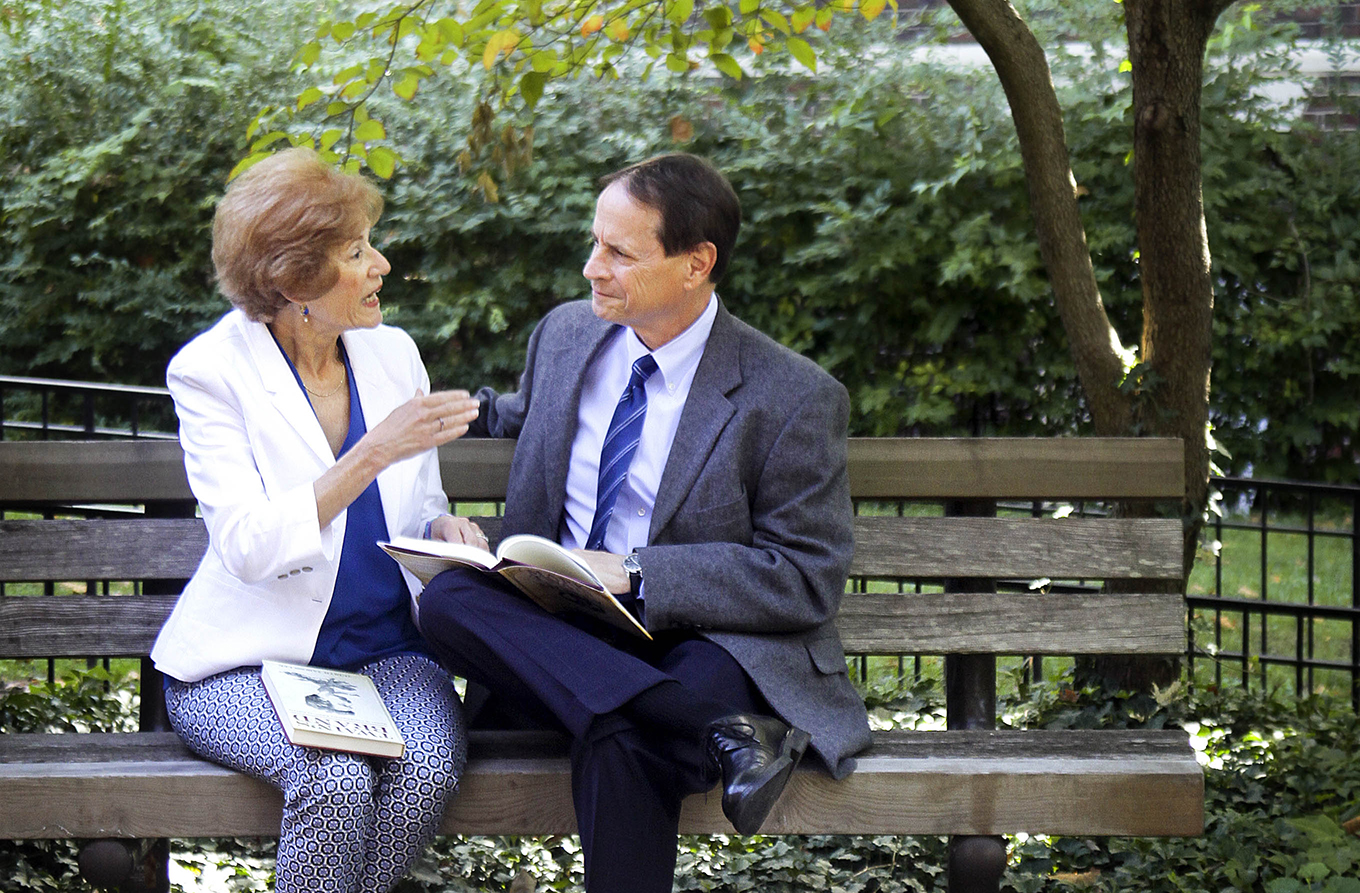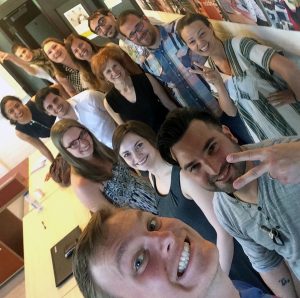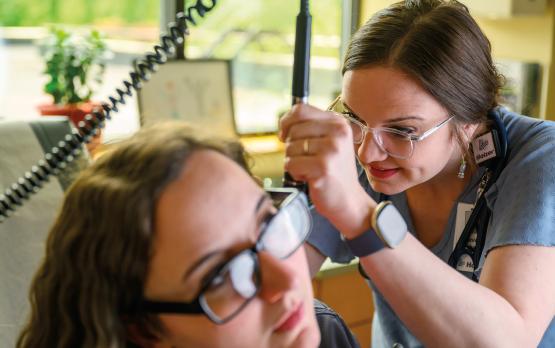

Distinguished humor
The Distinguished Professor Award, OHIO’s highest recognition for faculty, has been bestowed since 1959. Of the fifty-six who have received it, four are women. Judith Yaross Lee, an interdisciplinary Americanist, became the fourth in 2016.
Kelee Garrison Riesbeck, BSJ, CERT ’91 | October 29, 2017
Share:
Lee and colleague, friend, and Interim Provost David Descutner recently sat down to discuss her scholarly work. An excerpt of their conversation follows.
Funny not funny
David: Your doctoral dissertation on American literary humor [focuses on] how writers invite readers to laugh at what our culture defines as not funny. What did you mean by that?
Judith: Comic treatment of tragic material used to be called black humor. Now we call it gallows humor. My dissertation was an effort to understand text created with a certain set of rhetorical goals in mind. [It] is an interesting way to look at humor because, compared to oral delivery, literary humor is tightly controlled.
David: Is using rhetoric and the concepts of rhetoric as you just described standard in your own scholarly community?
Judith: There's more of a focus on the rhetoric and less on the audience per se. Even in my dissertation, I was not interested only or mainly in literature with a capital “L.” I was always interested in text with a little “t.” There was no topic so serious in my graduate studies that I couldn't find a low, vulgar angle on it.
The Mark Twain brand
David: Your most recent contribution is a chapter in Henry Wonham and Lawrence Howe's 2017 book, Mark Twain and Money: Language, Capital and Culture. What drove you to contribute to this topic?
Judith: I began by thinking about the Mark Twain Prize, [which has] almost nothing to do with Mark Twain. I was interested in the way that Mark Twain had become a brand for talking about American humor, and that became the germ of my 2012 book, Twain’s Brand: Humor in Contemporary American Culture.
What [are the] hallmarks of the brand, and how are they manifested today? I thought, what about the connection between Mark Twain and standup comedy? I realized that he was wholeheartedly committed to an idea of the self as a performance. I was also thinking about vernacular narration: it's such a hallmark of Mark Twain's dialect writing, and a very important part of nineteenth century literary humor.
[I wanted to convey] the importance of brands in a post-industrial society, and a post-industrial economy in particular, because what brands are selling is rhetoric. Humor is really such an essential rhetorical form.
A little Mad
David: [Let’s talk] about what you're working on now.
Judith: I'm co-editing two books with two different people…(both are) collections of essays. One is on Mad magazine. I'm really thrilled about that. There has been so little scholarship on Mad.
David: That's shocking to me.
Judith: There cannot have been more than ten articles in fifty years, although Mad was a major force in the counterculture of the 1960s and deeply influential on comedians active in all media today who were kids then.
On teaching
David: When you think about teaching, as a scholar, what goes through your mind?
Judith: One of them certainly is…I am still a student. I am still studying. I am still learning. I am still struggling to figure out what I think and how to write it. I'm not afraid to say how hard I work and to give people a flavor of it. I was a very undistinguished high school and undergraduate student. I was not a star.
David: [Nor] was I.
Judith: It took me a long time to find my ambition. Once I did, I felt I had to make up for lost time. I try to share that with (students), too. That's really not about being smart. It's about sitting in the chair and pushing yourself.

Lee pushes students to work hard and enroll in classes with topics that take them outside their of comfort zone. “You’re in a great university,” she tells her students. “There are lots of things to learn about.” Image courtesy of Judith Lee
I look really hard for engaging examples. I study humor. I don't have to come in with the most boring example possible.
I've never wanted to give up advising undergraduates…They say to me sometimes, "I have nothing left to take, but I need all these credits." I say, "You're not a squirrel. Even squirrels play. It's not just about storing up nuts for the winter. You're in a great university. There are lots of things to learn about."
David: Hell, yes. That's funny.
Judith: How can you make your mind a more interesting place to spend an afternoon? How can you enrich your experience and understanding of living in the world? Doing that is part of your job as a student, as much as to develop your capacity to earn a living. I don't pretend that students shouldn't care about earning a living when they graduate, but I think we need to restore some of the balance like Charlie (Ping, OHIO’s president from 1975 to 1994) had when he said, “We're preparing you for your third job, not only your first one.”




